124 papers:
 HT-2015-BlountMW #logic #social #web
HT-2015-BlountMW #logic #social #web- An Investigation into the Use of Logical and Rhetorical Tactics within Eristic Argumentation on the Social Web (TB, DEM, MJW), pp. 195–199.
 ESOP-2015-DavidKL #source code #strict #termination
ESOP-2015-DavidKL #source code #strict #termination- Unrestricted Termination and Non-termination Arguments for Bit-Vector Programs (CD, DK, ML), pp. 183–204.
 HIMI-IKD-2015-GonzalezCB #approach #design #modelling #sentiment
HIMI-IKD-2015-GonzalezCB #approach #design #modelling #sentiment- Modeling User’s Sentiment in User Segmentations: An Argumentation Approach for User Centered Design (MPG, CIC, RFB), pp. 595–606.
 ICLP-2015-Maher
ICLP-2015-Maher- Relating Concrete Argumentation Formalisms and Abstract Argumentation (MJM).
 ICLP-J-2015-GagglMRWW #encoding #programming
ICLP-J-2015-GagglMRWW #encoding #programming- Improved answer-set programming encodings for abstract argumentation (SAG, NM, AR, JPW, SW), pp. 434–448.
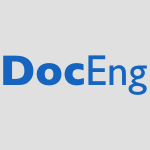 DocEng-2014-FerilliGRE #detection #order
DocEng-2014-FerilliGRE #detection #order- Abstract argumentation for reading order detection (SF, DG, DR, FE), pp. 45–48.
 LCT-TRE-2014-LoureiroSBR #collaboration #question #what
LCT-TRE-2014-LoureiroSBR #collaboration #question #what- Collaboration, Knowledge Sharing and Digital Environments: What about Argumentation and Questioning Skills? (MJ(L, FNdS, AB, AR), pp. 440–449.
 KR-2014-BoothAR
KR-2014-BoothAR- Interval Methods for Judgment Aggregation in Argumentation (RB, EA, IR).
 KR-2014-CeruttiGVZ #recursion
KR-2014-CeruttiGVZ #recursion- An SCC Recursive Meta-Algorithm for Computing Preferred Labellings in Abstract Argumentation (FC, MG, MV, MZ).
 KR-2014-Coste-MarquisKMM #on the
KR-2014-Coste-MarquisKMM #on the- On the Revision of Argumentation Systems: Minimal Change of Arguments Statuses (SCM, SK, JGM, PM).
 KR-2014-DoutreHP #framework #logic
KR-2014-DoutreHP #framework #logic- A Dynamic Logic Framework for Abstract Argumentation (SD, AH, LP).
 KR-2014-DunneDLW #multi
KR-2014-DunneDLW #multi- Characteristics of Multiple Viewpoints in Abstract Argumentation (PED, WD, TL, SW).
 KR-2014-GrossiH
KR-2014-GrossiH- Justified Beliefs by Justified Arguments (DG, WvdH).
 SEKE-2014-BarnesL #analysis #clustering
SEKE-2014-BarnesL #analysis #clustering- Text-Based Clustering and Analysis of Intelligent Argumentation Data (ECB, XFL), pp. 422–425.
 SEKE-2014-JingLC #approach #collaboration #design
SEKE-2014-JingLC #approach #collaboration #design- An Argument-based Collaborative Negotiation Approach to Support Software Design Collaboration (NJ, SCYL, HFC), pp. 274–279.
 SEKE-2014-LiuCB #architecture
SEKE-2014-LiuCB #architecture- Software Architecture Rationale Capture through Intelligent Argumentation (XFL, NC, ECB), pp. 156–161.
 REFSQ-2014-Morales-RamirezP #perspective #research
REFSQ-2014-Morales-RamirezP #perspective #research- Argumentation-Based Discussion for User Forum: A Research Preview (IMR, AP), pp. 232–238.
 ASE-2013-VeerappaH #approach #maturity #requirements
ASE-2013-VeerappaH #approach #maturity #requirements- Assessing the maturity of requirements through argumentation: A good enough approach (VV, RH), pp. 670–675.
 IFL-2013-GijzelN #framework #implementation #modelling #towards #verification
IFL-2013-GijzelN #framework #implementation #modelling #towards #verification- Towards a framework for the implementation and verification of translations between argumentation models (BvG, HN), p. 93.
 CSCW-2013-SchneiderSPD #ad hoc #experience #how #online
CSCW-2013-SchneiderSPD #ad hoc #experience #how #online- Arguments about deletion: how experience improves the acceptability of arguments in ad-hoc online task groups (JS, KS, AP, SD), pp. 1069–1080.
 DUXU-WM-2013-LeNDP #interactive #process
DUXU-WM-2013-LeNDP #interactive #process- Scaffolding Computer Supported Argumentation Processes through Mini Map Based Interaction Techniques (NTL, SN, DD, NP), pp. 533–542.
 SEKE-2013-MaghrabyR #synthesis
SEKE-2013-MaghrabyR #synthesis- Argumentation Understood as Program Synthesis (S) (AM, DR), pp. 681–684.
 WCRE-2012-DurfinaKZK #decompiler #detection
WCRE-2012-DurfinaKZK #decompiler #detection- Detection and Recovery of Functions and their Arguments in a Retargetable Decompiler (LD, JK, PZ, BK), pp. 51–60.
 CIKM-2012-HongZCYZZ #recognition
CIKM-2012-HongZCYZZ #recognition- Cross-argument inference for implicit discourse relation recognition (YH, XZ, TC, JMY, QZ, GZ), pp. 295–304.
 CIKM-2012-KacimiG #mining #named
CIKM-2012-KacimiG #mining #named- MOUNA: mining opinions to unveil neglected arguments (MK, JG), pp. 2722–2724.
 KDIR-2012-Delmonte #dependence #information management #null
KDIR-2012-Delmonte #dependence #information management #null- Predicate Argument Structures for Information Extraction from Dependency Representations — Null Elements are Missing (RD), pp. 463–474.
 KR-2012-BudanLCS #framework #modelling #reliability
KR-2012-BudanLCS #framework #modelling #reliability- Modelling Time and Reliability in Structured Argumentation Frameworks (MCB, MJGL, CIC, GRS).
 KR-2012-Coste-MarquisKMO #framework
KR-2012-Coste-MarquisKMO #framework- Weighted Attacks in Argumentation Frameworks (SCM, SK, PM, MAO).
 KR-2012-CravenTCHW #performance
KR-2012-CravenTCHW #performance- Efficient Argumentation for Medical Decision-Making (RC, FT, CC, AH, MW).
 KR-2012-DvorakJWW
KR-2012-DvorakJWW- Complexity-Sensitive Decision Procedures for Abstract Argumentation (WD, MJ, JPW, SW).
 KR-2012-Grossi #fixpoint
KR-2012-Grossi #fixpoint- Fixpoints and Iterated Updates in Abstract Argumentation (DG).
 TOOLS-EUROPE-2012-LangrTDD #c++ #runtime
TOOLS-EUROPE-2012-LangrTDD #c++ #runtime- Fake Run-Time Selection of Template Arguments in C++ (DL, PT, TD, JPD), pp. 140–154.
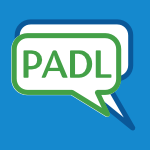 PADL-2012-MartinsME #functional #programming
PADL-2012-MartinsME #functional #programming- The Environment as an Argument — Context-Aware Functional Programming (PMM, JAM, SE), pp. 48–62.
 RE-2012-TunBPYHON #mobile #privacy #requirements
RE-2012-TunBPYHON #mobile #privacy #requirements- Privacy arguments: Analysing selective disclosure requirements for mobile applications (TTT, AKB, BAP, YY, CBH, IO, BN), pp. 131–140.
 ICST-2012-CalvarTH #framework #monitoring #runtime
ICST-2012-CalvarTH #framework #monitoring #runtime- A Runtime Monitoring Framework for Event Streams with Non-primitive Arguments (JC, RTL, SH), pp. 499–508.
 ASE-2011-Halfond #web
ASE-2011-Halfond #web- Domain and value checking of web application invocation arguments (WGJH), pp. 544–547.
 STOC-2011-GentryW
STOC-2011-GentryW- Separating succinct non-interactive arguments from all falsifiable assumptions (CG, DW), pp. 99–108.
 ICFP-2011-DevrieseP #on the
ICFP-2011-DevrieseP #on the- On the bright side of type classes: instance arguments in Agda (DD, FP), pp. 143–155.
 HIMI-v2-2011-GonzalezGGS #hybrid #tool support #towards
HIMI-v2-2011-GonzalezGGS #hybrid #tool support #towards- Towards Argument Representational Tools for Hybrid Argumentation Systems (MPG, SG, AJG, GRS), pp. 236–245.
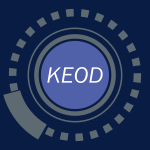 KEOD-2011-KarousosPXKT #development #learning #tool support
KEOD-2011-KarousosPXKT #development #learning #tool support- Development of Argumentation Skills via Learning Management Systems — Bringing together Argumentation Support Tools and Learning Management Systems (NK, SP, MNX, NIK, MT), pp. 474–477.
 KEOD-2011-Koit
KEOD-2011-Koit- Conversational Agent in Argumentation — Updating of Information States (MK), pp. 375–378.
 KEOD-2011-TakeuchiTMMS #ambiguity #evaluation
KEOD-2011-TakeuchiTMMS #ambiguity #evaluation- Verb Sense Disambiguation based on Thesaurus of Predicate-argument Structure — An Evaluation of Thesaurus of Predicate-argument Structure for Japanese Verbs (KT, ST, MM, YM, KS), pp. 208–213.
 SEKE-2011-AlspaughAS
SEKE-2011-AlspaughAS- Presenting Software License Conflicts through Argumentation (TAA, HUA, WS), pp. 509–514.
 RE-2011-FranqueiraTYWN #security
RE-2011-FranqueiraTYWN #security- Risk and argument: A risk-based argumentation method for practical security (VNLF, TTT, YY, RW, BN), pp. 239–248.
 RE-2011-YuTTFN #named
RE-2011-YuTTFN #named- OpenArgue: Supporting argumentation to evolve secure software systems (YY, TTT, AT, VNLF, BN), pp. 351–352.
 SAC-2011-BagheriE #multi #specification
SAC-2011-BagheriE #multi #specification- Consolidating multiple requirement specifications through argumentation (EB, FE), pp. 659–666.
 SAC-2011-BistarelliCS
SAC-2011-BistarelliCS- Finding partitions of arguments with Dung’s properties via SCSPs (SB, PC, FS), pp. 913–919.
 ICLP-2011-FodorK #logic #transaction
ICLP-2011-FodorK #logic #transaction- Transaction Logic with Defaults and Argumentation Theories (PF, MK), pp. 162–174.
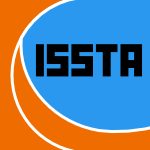 ISSTA-2011-PradelG #detection #order
ISSTA-2011-PradelG #detection #order- Detecting anomalies in the order of equally-typed method arguments (MP, TRG), pp. 232–242.
 ICML-2010-OntanonP #approach #induction #learning #multi
ICML-2010-OntanonP #approach #induction #learning #multi- Multiagent Inductive Learning: an Argumentation-based Approach (SO, EP), pp. 839–846.
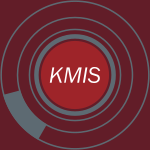 KMIS-2010-GonzalezCPL #usability
KMIS-2010-GonzalezCPL #usability- Developing Argument Assistant Systems from a Usability Viewpoint (MPG, CIC, NP, MJGL), pp. 157–163.
 KR-2010-DvorakPW #algorithm #parametricity #towards
KR-2010-DvorakPW #algorithm #parametricity #towards- Towards Fixed-Parameter Tractable Algorithms for Argumentation (WD, RP, SW).
 KR-2010-OikarinenW #equivalence #framework
KR-2010-OikarinenW #equivalence #framework- Characterizing Strong Equivalence for Argumentation Frameworks (EO, SW).
 RE-2010-KangJ #dependence
RE-2010-KangJ #dependence- Dependability Arguments with Trusted Bases (EK, DJ), pp. 262–271.
 SAC-2010-RytzO #design #object-oriented #polymorphism #scala
SAC-2010-RytzO #design #object-oriented #polymorphism #scala- Named and default arguments for polymorphic object-oriented languages: a discussion on the design implemented in the Scala language (LR, MO), pp. 2090–2095.
 ICLP-2010-Gaggl10 #programming #towards
ICLP-2010-Gaggl10 #programming #towards- Towards a General Argumentation System based on Answer-Set Programming (SAG), pp. 265–269.
 ICALP-v1-2009-DraismaKW #communication #complexity #multi
ICALP-v1-2009-DraismaKW #communication #complexity #multi- Partition Arguments in Multiparty Communication Complexity (JD, EK, EW), pp. 390–402.
 HCD-2009-GonzalezPST #development #interface #process
HCD-2009-GonzalezPST #development #interface #process- Development of CSCW Interfaces from a User-Centered Viewpoint: Extending the TOUCHE Process Model through Defeasible Argumentation (MPG, VMRP, GRS, RT), pp. 955–964.
 ICEIS-AIDSS-2009-SpradoG #semantics
ICEIS-AIDSS-2009-SpradoG #semantics- Semantic Argumentation in Dynamic Environments (JS, BG), pp. 236–241.
 ICLP-2009-ChristiansenG
ICLP-2009-ChristiansenG- Non-discriminating Arguments and Their Uses (HC, JPG), pp. 55–69.
 ICLP-2009-WanGKFL #logic programming
ICLP-2009-WanGKFL #logic programming- Logic Programming with Defaults and Argumentation Theories (HW, BNG, MK, PF, SL), pp. 432–448.
 KR-2008-AmgoudDM
KR-2008-AmgoudDM- Making Decisions through Preference-Based Argumentation (LA, YD, PM), pp. 113–123.
 KR-2008-CayrolSL
KR-2008-CayrolSL- Revision of an Argumentation System (CC, FDdSC, MCLS), pp. 124–134.
 KR-2008-MartinezGS #framework
KR-2008-MartinezGS #framework- An Abstract Argumentation Framework with Varied-Strength Attacks (DCM, AJG, GRS), pp. 135–144.
 ICLP-2008-EglyGW #framework #implementation #named #programming #using
ICLP-2008-EglyGW #framework #implementation #named #programming #using- ASPARTIX: Implementing Argumentation Frameworks Using Answer-Set Programming (UE, SAG, SW), pp. 734–738.
 RE-2007-MaidenLRJB #modelling #using
RE-2007-MaidenLRJB #modelling #using- Using Satisfaction Arguments to Enhance i* Modelling of an Air Traffic Management System (NAMM, JL, DR, SJ, DB), pp. 49–52.
 ICALP-v1-2006-Wolf #bound #matrix #quantum
ICALP-v1-2006-Wolf #bound #matrix #quantum- Lower Bounds on Matrix Rigidity Via a Quantum Argument (RdW), pp. 62–71.
 ICEIS-AIDSS-2006-ChangHG
ICEIS-AIDSS-2006-ChangHG- Source Sensitive Argumentation System (CFC, PH, AG), pp. 39–46.
 ICEIS-ISAS-2006-BenferhatB #policy #security
ICEIS-ISAS-2006-BenferhatB #policy #security- Argument-Based Approaches in Prioritized Conflicting Security Policies (SB, REB), pp. 349–354.
 KR-2006-BesnardH #compilation #knowledge base #logic #performance
KR-2006-BesnardH #compilation #knowledge base #logic #performance- Knowledgebase Compilation for Efficient Logical Argumentation (PB, AH), pp. 123–133.
 KR-2006-Coste-MarquisDM #framework
KR-2006-Coste-MarquisDM #framework- Constrained Argumentation Frameworks (SCM, CD, PM), pp. 112–122.
 HT-2005-BocconiNH #generative #sequence #video
HT-2005-BocconiNH #generative #sequence #video- Supporting the generation of argument structure within video sequences (SB, FN, LH), pp. 75–84.
 ESOP-2005-LeuschelV #deduction #slicing
ESOP-2005-LeuschelV #deduction #slicing- Forward Slicing by Conjunctive Partial Deduction and Argument Filtering (ML, GV), pp. 61–76.
 ICALP-2005-Wee #on the
ICALP-2005-Wee #on the- On Round-Efficient Argument Systems (HW), pp. 140–152.
 STOC-2004-Aaronson04a #bound #quantum
STOC-2004-Aaronson04a #bound #quantum- Lower bounds for local search by quantum arguments (SA), pp. 465–474.
 KR-2004-AmgoudP #approach
KR-2004-AmgoudP #approach- Reaching Agreement Through Argumentation: A Possibilistic Approach (LA, HP), pp. 175–182.
 KR-2004-BesnardD #semantics
KR-2004-BesnardD #semantics- Characterization of Semantics for Argument Systems (PB, SD), pp. 183–193.
 SAC-2004-MorgeB #multi
SAC-2004-MorgeB #multi- A Negotiation Support System based on a Multi-agent System: specificity and preference relations on arguments (MM, PB), pp. 474–478.
 ASE-2003-Moore #communication #requirements #user interface #using
ASE-2003-Moore #communication #requirements #user interface #using- Communicating Requirements Using End-User GUI Constructions with Argumentation (JMM), pp. 360–363.
 STOC-2003-KerenidisW #bound #exponential #quantum
STOC-2003-KerenidisW #bound #exponential #quantum- Exponential lower bound for 2-query locally decodable codes via a quantum argument (IK, RdW), pp. 106–115.
 SEKE-2003-MenziesKF #automation #re-engineering #reduction #tool support
SEKE-2003-MenziesKF #automation #re-engineering #reduction #tool support- Improved Software Engineering Decision Support Through Automatic Argument Reduction Tools (TM, JDK, MSF), pp. 655–662.
 ICLP-2003-Pradhan #database
ICLP-2003-Pradhan #database- Argumentation Databases (SP), pp. 178–193.
 IJCAR-2001-DoutreM #framework #query
IJCAR-2001-DoutreM #framework #query- Preferred Extensions of Argumentation Frameworks: Query Answering and Computation (SD, JM), pp. 272–288.
 HT-2000-Carter #approach #hypermedia
HT-2000-Carter #approach #hypermedia- Arguments in hypertext: a rhetorical approach (LMC), pp. 85–91.
 STOC-2000-Ambainis #bound #quantum
STOC-2000-Ambainis #bound #quantum- Quantum lower bounds by quantum arguments (AA), pp. 636–643.
 KR-2000-DimopoulosNT
KR-2000-DimopoulosNT- Finding Admissible and Preferred Arguments Can be Very Hard (YD, BN, FT), pp. 53–61.
 SIGIR-2000-Robertson #information retrieval
SIGIR-2000-Robertson #information retrieval- Salton Award Lecture: On theoretical argument in information retrieval (SER), p. 1.
 CSEET-1999-FrewMBA #re-engineering #security
CSEET-1999-FrewMBA #re-engineering #security- Software Engineering and Security Engineering — An Argument for Merger (panel) (BF, TM, JEBI, MDA), p. 74–?.
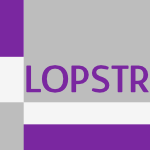 LOPSTR-1999-PettorossiP #logic programming #source code
LOPSTR-1999-PettorossiP #logic programming #source code- Transformation Rules for Logic Programs with Goals as Arguments (AP, MP), pp. 176–195.
 PPDP-1999-KusakariNT
PPDP-1999-KusakariNT- Argument Filtering Transformation (KK, MN, YT), pp. 47–61.
 ICALP-1998-DamgardP #interactive #performance
ICALP-1998-DamgardP #interactive #performance- Sequential Iteration of Interactive Arguments and an Efficient Zero-Knowledge Argument for NP (ID, BP), pp. 772–783.
 ACIR-1998-PicardH #information retrieval #modelling #probability
ACIR-1998-PicardH #information retrieval #modelling #probability- Modeling Information Retrieval with Probabilistic Argumentation Systems (JP, RH).
 SIGIR-1998-Picard #documentation #modelling #probability #using
SIGIR-1998-Picard #documentation #modelling #probability #using- Modeling and Combining Evidence Provided by Document Relationships Using Probabilistic Argumentation Systems (JP), pp. 182–189.
 STOC-1997-CramerD #linear #performance #proving
STOC-1997-CramerD #linear #performance #proving- Linear Zero-Knowledge — A Note on Efficient Zero-Knowledge Proofs and Arguments (RC, ID), pp. 436–445.
 KR-1996-DungS #approach #reasoning
KR-1996-DungS #approach #reasoning- An Argumentation-theoretic Approach to Reasoning with Specificity (PMD, TCS), pp. 506–517.
 LOPSTR-1996-BenoyK
LOPSTR-1996-BenoyK- Inferring Argument Size Relationships with CLP(R) (FB, AK), pp. 204–223.
 LOPSTR-1996-LeuschelS96a #logic programming #source code
LOPSTR-1996-LeuschelS96a #logic programming #source code- Redundant Argument Filtering of Logic Programs (ML, MHS), pp. 83–103.
 CIKM-1995-StranieriZ #formal method #reasoning
CIKM-1995-StranieriZ #formal method #reasoning- Levels of Reasoning as the Basis for a Formalisation of Argumentation (AS, JZ), pp. 333–339.
 LOPSTR-1995-ToniK #approach #logic programming #program transformation
LOPSTR-1995-ToniK #approach #logic programming #program transformation- An Argumentation-Theoretic Approach to Logic Program Transformation (FT, RAK), pp. 61–75.
 HPCA-1995-SaulsburyWCL
HPCA-1995-SaulsburyWCL- An Argument for Simple COMA (AS, TW, JBC, AL), pp. 276–285.
 PODS-1994-Sohn #constraints #logic programming #source code
PODS-1994-Sohn #constraints #logic programming #source code- Constraints among Argument Sizes in Logic Programs (KS), pp. 68–74.
 LOPSTR-1994-SolnonR #dependence #type inference
LOPSTR-1994-SolnonR #dependence #type inference- Propagation of Inter-argument Dependencies in “Tuple-distributive” Type Inference Systems (CS, MR), pp. 199–214.
 ICLP-1994-Zhou #on the #prolog #stack
ICLP-1994-Zhou #on the #prolog #stack- On the Scheme of Passing Arguments in Stack Frames for Prolog (NFZ), pp. 159–174.
 ILPS-1994-YouC #semantics
ILPS-1994-YouC #semantics- Tractable Argumentation Semantics via Iterative Belief Revision (JHY, RC), pp. 239–253.
 HCI-SHI-1993-SillinceM #human-computer #hypermedia #using
HCI-SHI-1993-SillinceM #human-computer #hypermedia #using- Using Argumentation to Overcome Hypertext’s HCI Failings (JAAS, RHM), pp. 639–644.
 CSL-1993-OngR #calculus #normalisation
CSL-1993-OngR #calculus #normalisation- A Generic Strong Normalization Argument: Application to the Calculus of Constructions (CHLO, ER), pp. 261–279.
 ICLP-1993-Dung93a #logic programming #semantics
ICLP-1993-Dung93a #logic programming #semantics- An Argumentation Semantics for Logic Programming with Explicit Negation (PMD), pp. 616–630.
 PODS-1992-Ross #algebra #calculus
PODS-1992-Ross #algebra #calculus- Relations with Relation Names as Arguments: Algebra and Calculus (KAR), pp. 346–353.
 STOC-1992-Kilian #performance #proving
STOC-1992-Kilian #performance #proving- A Note on Efficient Zero-Knowledge Proofs and Arguments (Extended Abstract) (JK), pp. 723–732.
 KBSE-1991-Sasso
KBSE-1991-Sasso- Motivating Adoption of KBSA: Issues, Arguments, and Strategies (WCS), pp. 90–96.
 PODS-1991-SohnG #detection #logic programming #source code #termination #using
PODS-1991-SohnG #detection #logic programming #source code #termination #using- Termination Detection in Logic Programs using Argument Sizes (KS, AVG), pp. 216–226.
 ECHT-1990-SchulerS #authoring
ECHT-1990-SchulerS #authoring- Author’s Argumentation Assistant (AAA): A Hypertext-Based Authoring Tool for Argumentative Texts (WS, JBS), pp. 137–151.
 PODS-1990-Gelder #constraints #logic programming #source code
PODS-1990-Gelder #constraints #logic programming #source code- Deriving Constraints Among Argument Sizes in Logic Programs (AVG), pp. 47–60.
 NACLP-1990-Umrigar #order #prolog #unification
NACLP-1990-Umrigar #order #prolog #unification- Finding Advantageous Orders for Argument Unification for the Prolog WAM (ZDU), pp. 80–96.
 HT-1989-StreitzHT #process
HT-1989-StreitzHT #process- From Ideas and Arguments to Hyperdocuments: Travelling through Activity Spaces (NAS, JH, MT), pp. 343–364.
 VLDB-1989-NaughtonRSU #reduction
VLDB-1989-NaughtonRSU #reduction- Argument Reduction by Factoring (JFN, RR, YS, JDU), pp. 173–182.
 CHI-1989-FischerMM #design
CHI-1989-FischerMM #design- Design environments for constructive and argumentative design (GF, RM, AIM), pp. 269–275.
 CHI-1989-MacLeanYM #design
CHI-1989-MacLeanYM #design- Design rationale: the argument behind the artifact (AM, RMY, TPM), pp. 247–252.
 KR-1989-LinS #reasoning
KR-1989-LinS #reasoning- Argument Systems: A Uniform Basis for Nonmonotonic Reasoning (FL, YS), pp. 245–255.
 CADE-1988-Walther #algorithm #automation #bound #proving #termination
CADE-1988-Walther #algorithm #automation #bound #proving #termination- Argument-Bounded Algorithms as a Basis for Automated Termination Proofs (CW), pp. 602–621.
 HT-1987-SmolenskyBFKL #constraints #hypermedia
HT-1987-SmolenskyBFKL #constraints #hypermedia- Constraint-Based Hypertext for Argumentation (PS, BB, BF, RK, CHL), pp. 215–245.
 ICALP-1986-Schoning #bound #recursion
ICALP-1986-Schoning #bound #recursion- Lower Bounds by Recursion Theoretic Arguments (Extended Abstract) (US), pp. 370–375.
 ICALP-1976-FriedmanW
ICALP-1976-FriedmanW- CONS Should Not Evaluate its Arguments (DPF, DSW), pp. 257–284.
 STOC-1974-Kedem #bound #multi
STOC-1974-Kedem #bound #multi- Combining Dimensionality and Rate of Growth Arguments for Establishing Lower Bounds on the Number of Multiplications (ZMK), pp. 334–341.
 HT-2015-BlountMW #logic #social #web
HT-2015-BlountMW #logic #social #web ESOP-2015-DavidKL #source code #strict #termination
ESOP-2015-DavidKL #source code #strict #termination HIMI-IKD-2015-GonzalezCB #approach #design #modelling #sentiment
HIMI-IKD-2015-GonzalezCB #approach #design #modelling #sentiment ICLP-2015-Maher
ICLP-2015-Maher ICLP-J-2015-GagglMRWW #encoding #programming
ICLP-J-2015-GagglMRWW #encoding #programming DocEng-2014-FerilliGRE #detection #order
DocEng-2014-FerilliGRE #detection #order LCT-TRE-2014-LoureiroSBR #collaboration #question #what
LCT-TRE-2014-LoureiroSBR #collaboration #question #what KR-2014-BoothAR
KR-2014-BoothAR KR-2014-CeruttiGVZ #recursion
KR-2014-CeruttiGVZ #recursion KR-2014-Coste-MarquisKMM #on the
KR-2014-Coste-MarquisKMM #on the KR-2014-DoutreHP #framework #logic
KR-2014-DoutreHP #framework #logic KR-2014-DunneDLW #multi
KR-2014-DunneDLW #multi KR-2014-GrossiH
KR-2014-GrossiH SEKE-2014-BarnesL #analysis #clustering
SEKE-2014-BarnesL #analysis #clustering SEKE-2014-JingLC #approach #collaboration #design
SEKE-2014-JingLC #approach #collaboration #design SEKE-2014-LiuCB #architecture
SEKE-2014-LiuCB #architecture REFSQ-2014-Morales-RamirezP #perspective #research
REFSQ-2014-Morales-RamirezP #perspective #research ASE-2013-VeerappaH #approach #maturity #requirements
ASE-2013-VeerappaH #approach #maturity #requirements IFL-2013-GijzelN #framework #implementation #modelling #towards #verification
IFL-2013-GijzelN #framework #implementation #modelling #towards #verification CSCW-2013-SchneiderSPD #ad hoc #experience #how #online
CSCW-2013-SchneiderSPD #ad hoc #experience #how #online DUXU-WM-2013-LeNDP #interactive #process
DUXU-WM-2013-LeNDP #interactive #process SEKE-2013-MaghrabyR #synthesis
SEKE-2013-MaghrabyR #synthesis WCRE-2012-DurfinaKZK #decompiler #detection
WCRE-2012-DurfinaKZK #decompiler #detection CIKM-2012-HongZCYZZ #recognition
CIKM-2012-HongZCYZZ #recognition CIKM-2012-KacimiG #mining #named
CIKM-2012-KacimiG #mining #named KDIR-2012-Delmonte #dependence #information management #null
KDIR-2012-Delmonte #dependence #information management #null KR-2012-BudanLCS #framework #modelling #reliability
KR-2012-BudanLCS #framework #modelling #reliability KR-2012-Coste-MarquisKMO #framework
KR-2012-Coste-MarquisKMO #framework KR-2012-CravenTCHW #performance
KR-2012-CravenTCHW #performance KR-2012-DvorakJWW
KR-2012-DvorakJWW KR-2012-Grossi #fixpoint
KR-2012-Grossi #fixpoint TOOLS-EUROPE-2012-LangrTDD #c++ #runtime
TOOLS-EUROPE-2012-LangrTDD #c++ #runtime PADL-2012-MartinsME #functional #programming
PADL-2012-MartinsME #functional #programming RE-2012-TunBPYHON #mobile #privacy #requirements
RE-2012-TunBPYHON #mobile #privacy #requirements ICST-2012-CalvarTH #framework #monitoring #runtime
ICST-2012-CalvarTH #framework #monitoring #runtime ASE-2011-Halfond #web
ASE-2011-Halfond #web STOC-2011-GentryW
STOC-2011-GentryW ICFP-2011-DevrieseP #on the
ICFP-2011-DevrieseP #on the HIMI-v2-2011-GonzalezGGS #hybrid #tool support #towards
HIMI-v2-2011-GonzalezGGS #hybrid #tool support #towards KEOD-2011-KarousosPXKT #development #learning #tool support
KEOD-2011-KarousosPXKT #development #learning #tool support KEOD-2011-Koit
KEOD-2011-Koit KEOD-2011-TakeuchiTMMS #ambiguity #evaluation
KEOD-2011-TakeuchiTMMS #ambiguity #evaluation SEKE-2011-AlspaughAS
SEKE-2011-AlspaughAS RE-2011-FranqueiraTYWN #security
RE-2011-FranqueiraTYWN #security RE-2011-YuTTFN #named
RE-2011-YuTTFN #named SAC-2011-BagheriE #multi #specification
SAC-2011-BagheriE #multi #specification SAC-2011-BistarelliCS
SAC-2011-BistarelliCS ICLP-2011-FodorK #logic #transaction
ICLP-2011-FodorK #logic #transaction ISSTA-2011-PradelG #detection #order
ISSTA-2011-PradelG #detection #order ICML-2010-OntanonP #approach #induction #learning #multi
ICML-2010-OntanonP #approach #induction #learning #multi KMIS-2010-GonzalezCPL #usability
KMIS-2010-GonzalezCPL #usability KR-2010-DvorakPW #algorithm #parametricity #towards
KR-2010-DvorakPW #algorithm #parametricity #towards KR-2010-OikarinenW #equivalence #framework
KR-2010-OikarinenW #equivalence #framework RE-2010-KangJ #dependence
RE-2010-KangJ #dependence SAC-2010-RytzO #design #object-oriented #polymorphism #scala
SAC-2010-RytzO #design #object-oriented #polymorphism #scala ICLP-2010-Gaggl10 #programming #towards
ICLP-2010-Gaggl10 #programming #towards ICALP-v1-2009-DraismaKW #communication #complexity #multi
ICALP-v1-2009-DraismaKW #communication #complexity #multi HCD-2009-GonzalezPST #development #interface #process
HCD-2009-GonzalezPST #development #interface #process ICEIS-AIDSS-2009-SpradoG #semantics
ICEIS-AIDSS-2009-SpradoG #semantics ICLP-2009-ChristiansenG
ICLP-2009-ChristiansenG ICLP-2009-WanGKFL #logic programming
ICLP-2009-WanGKFL #logic programming KR-2008-AmgoudDM
KR-2008-AmgoudDM KR-2008-CayrolSL
KR-2008-CayrolSL KR-2008-MartinezGS #framework
KR-2008-MartinezGS #framework ICLP-2008-EglyGW #framework #implementation #named #programming #using
ICLP-2008-EglyGW #framework #implementation #named #programming #using RE-2007-MaidenLRJB #modelling #using
RE-2007-MaidenLRJB #modelling #using ICALP-v1-2006-Wolf #bound #matrix #quantum
ICALP-v1-2006-Wolf #bound #matrix #quantum ICEIS-AIDSS-2006-ChangHG
ICEIS-AIDSS-2006-ChangHG ICEIS-ISAS-2006-BenferhatB #policy #security
ICEIS-ISAS-2006-BenferhatB #policy #security KR-2006-BesnardH #compilation #knowledge base #logic #performance
KR-2006-BesnardH #compilation #knowledge base #logic #performance KR-2006-Coste-MarquisDM #framework
KR-2006-Coste-MarquisDM #framework HT-2005-BocconiNH #generative #sequence #video
HT-2005-BocconiNH #generative #sequence #video ESOP-2005-LeuschelV #deduction #slicing
ESOP-2005-LeuschelV #deduction #slicing ICALP-2005-Wee #on the
ICALP-2005-Wee #on the STOC-2004-Aaronson04a #bound #quantum
STOC-2004-Aaronson04a #bound #quantum KR-2004-AmgoudP #approach
KR-2004-AmgoudP #approach KR-2004-BesnardD #semantics
KR-2004-BesnardD #semantics SAC-2004-MorgeB #multi
SAC-2004-MorgeB #multi ASE-2003-Moore #communication #requirements #user interface #using
ASE-2003-Moore #communication #requirements #user interface #using STOC-2003-KerenidisW #bound #exponential #quantum
STOC-2003-KerenidisW #bound #exponential #quantum SEKE-2003-MenziesKF #automation #re-engineering #reduction #tool support
SEKE-2003-MenziesKF #automation #re-engineering #reduction #tool support ICLP-2003-Pradhan #database
ICLP-2003-Pradhan #database IJCAR-2001-DoutreM #framework #query
IJCAR-2001-DoutreM #framework #query HT-2000-Carter #approach #hypermedia
HT-2000-Carter #approach #hypermedia STOC-2000-Ambainis #bound #quantum
STOC-2000-Ambainis #bound #quantum KR-2000-DimopoulosNT
KR-2000-DimopoulosNT SIGIR-2000-Robertson #information retrieval
SIGIR-2000-Robertson #information retrieval CSEET-1999-FrewMBA #re-engineering #security
CSEET-1999-FrewMBA #re-engineering #security LOPSTR-1999-PettorossiP #logic programming #source code
LOPSTR-1999-PettorossiP #logic programming #source code PPDP-1999-KusakariNT
PPDP-1999-KusakariNT ICALP-1998-DamgardP #interactive #performance
ICALP-1998-DamgardP #interactive #performance ACIR-1998-PicardH #information retrieval #modelling #probability
ACIR-1998-PicardH #information retrieval #modelling #probability SIGIR-1998-Picard #documentation #modelling #probability #using
SIGIR-1998-Picard #documentation #modelling #probability #using STOC-1997-CramerD #linear #performance #proving
STOC-1997-CramerD #linear #performance #proving KR-1996-DungS #approach #reasoning
KR-1996-DungS #approach #reasoning LOPSTR-1996-BenoyK
LOPSTR-1996-BenoyK LOPSTR-1996-LeuschelS96a #logic programming #source code
LOPSTR-1996-LeuschelS96a #logic programming #source code CIKM-1995-StranieriZ #formal method #reasoning
CIKM-1995-StranieriZ #formal method #reasoning LOPSTR-1995-ToniK #approach #logic programming #program transformation
LOPSTR-1995-ToniK #approach #logic programming #program transformation HPCA-1995-SaulsburyWCL
HPCA-1995-SaulsburyWCL PODS-1994-Sohn #constraints #logic programming #source code
PODS-1994-Sohn #constraints #logic programming #source code LOPSTR-1994-SolnonR #dependence #type inference
LOPSTR-1994-SolnonR #dependence #type inference ICLP-1994-Zhou #on the #prolog #stack
ICLP-1994-Zhou #on the #prolog #stack ILPS-1994-YouC #semantics
ILPS-1994-YouC #semantics HCI-SHI-1993-SillinceM #human-computer #hypermedia #using
HCI-SHI-1993-SillinceM #human-computer #hypermedia #using CSL-1993-OngR #calculus #normalisation
CSL-1993-OngR #calculus #normalisation ICLP-1993-Dung93a #logic programming #semantics
ICLP-1993-Dung93a #logic programming #semantics PODS-1992-Ross #algebra #calculus
PODS-1992-Ross #algebra #calculus STOC-1992-Kilian #performance #proving
STOC-1992-Kilian #performance #proving KBSE-1991-Sasso
KBSE-1991-Sasso PODS-1991-SohnG #detection #logic programming #source code #termination #using
PODS-1991-SohnG #detection #logic programming #source code #termination #using ECHT-1990-SchulerS #authoring
ECHT-1990-SchulerS #authoring PODS-1990-Gelder #constraints #logic programming #source code
PODS-1990-Gelder #constraints #logic programming #source code NACLP-1990-Umrigar #order #prolog #unification
NACLP-1990-Umrigar #order #prolog #unification HT-1989-StreitzHT #process
HT-1989-StreitzHT #process VLDB-1989-NaughtonRSU #reduction
VLDB-1989-NaughtonRSU #reduction CHI-1989-FischerMM #design
CHI-1989-FischerMM #design CHI-1989-MacLeanYM #design
CHI-1989-MacLeanYM #design KR-1989-LinS #reasoning
KR-1989-LinS #reasoning CADE-1988-Walther #algorithm #automation #bound #proving #termination
CADE-1988-Walther #algorithm #automation #bound #proving #termination HT-1987-SmolenskyBFKL #constraints #hypermedia
HT-1987-SmolenskyBFKL #constraints #hypermedia ICALP-1986-Schoning #bound #recursion
ICALP-1986-Schoning #bound #recursion ICALP-1976-FriedmanW
ICALP-1976-FriedmanW STOC-1974-Kedem #bound #multi
STOC-1974-Kedem #bound #multi









